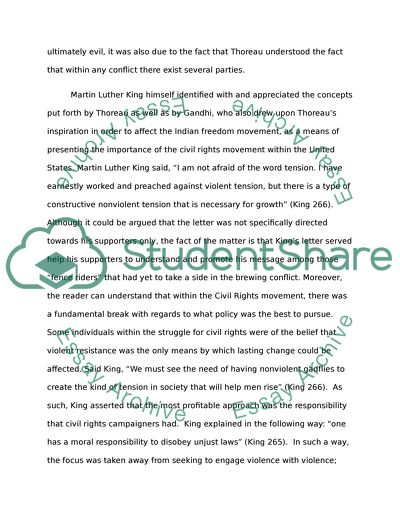Retrieved from https://studentshare.org/english/1473522-comparison-of-influence-a-case-study-based-upon-martin-luther-kings-letter-from-a-birmingham-jail-and-waldens-civil-disobedience
https://studentshare.org/english/1473522-comparison-of-influence-a-case-study-based-upon-martin-luther-kings-letter-from-a-birmingham-jail-and-waldens-civil-disobedience.


